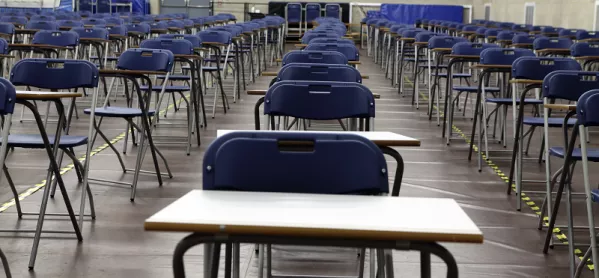Scrap ‘incredibly archaic’ GCSEs, urge businesses
Share
Scrap ‘incredibly archaic’ GCSEs, urge businesses
GCSEs are “a hangover” from an education system that finished at 16 and should be scrapped, the Confederation of British Industry’s (CBI) head of education and skills has said.
John Cope, head of education and skills at the CBI, echoed Robert Halfon’s calls for the end of GCSEs. Last month, Halfon, the Conservative MP and chair of the Commons Education Select Committee, called for the qualification to be replaced with a new baccalaureate taken at the age of 18 which mixed academic and vocational learning.
Speaking as part of a panel discussion at the launch of the Learning and Work Institute’s Time for Action report, Mr Cope said GCSEs “feel incredibly archaic,” adding: “[They are] a hangover from an education system that finished at 16, employers very rarely ask what your GCSEs are. So what role do they play in our system if people are staying in education and training until 18.
Read more: Halfon calls for GCSEs to be scrapped
More views: ‘Scrapping GCSEs would advantage only the privileged’
Background: Lord Baker: GCSEs now ‘redundant’
GCSEs: ‘Fundamental rethink’ needed?
Mr Cope added: “Our proposal is to fundamentally rethink what GCSEs are there for and to try and get rid of the culture of cramming for exams and tests at 16 and actually free up more time in the school timetable for social action or work experience. These sorts of activities actually build employability skills much better than cramming for an exam.”
Last month, one of the architects of GCSEs, Lord Baker - Margaret Thatcher’s former education secretary - also called for GCSEs to be scrapped calling them “redundant”. He conceded though that “they won’t go easily.”
In place of GCSEs, Mr Cope called for the 16 to 18 curriculum to be broadened out so “there are strong apprenticeship, technical, vocational and academic options from 16 onwards”. He added: “That means broadening out A levels. We’re quite an outlier in the United Kingdom by asking young people to specialise so quickly at the age of 16.”
Mr Cope’s message echoed calls by former CBI director-general John Cridland back in 2015.
Apprenticeship levy ‘not working’
On the apprenticeship levy, Mr Cope acknowledged that the levy system “is not working at the moment” and said the CBI will be asking its members whether they are in favour of a narrowing or broadening of the scope of the levy in the future.
In a speech to the Conservative Party conference in October, Chancellor of the Exchequer Philip Hammond announced that the government will consult with businesses that pay the apprenticeship levy about the future of the system from 2020 onwards.
Mr Cope said: “What we have got at the moment is a system with a very small pot of money in the grand scheme of things - the levy is only around £2.5 billion - so a relatively small pot to cover all levels of apprenticeships from level 2 to level 8. It is being used for getting people into their first job but also for reskilling and retraining - so it’s a panacea with a small pot of money.
‘To broaden or to narrow?’
He added: “I don’t quite know where the centre of gravity will be - you could go down the route of narrowing it down. You could narrow the levy down to younger people, or lower level training at levels 2, 3 and 4, and narrow the scope to deal with the overspend. Or you could go in the opposite direction and significantly increase the scope and bring more forms of training in.
“In that latter way you would need more money and business would have to pay more. So the debate we are having with our members at the moment is ‘what direction do you want to go in? Do you want to narrow the levy and potentially pay less but really narrow it down to young people who are going into their first job, or do you want to significantly increase the scope, and therefore pay more?’
Mr Cope said the CBI would publish a report on the outcome of its consultation and then campaign for that outcome in the government’s upcoming spending review.




